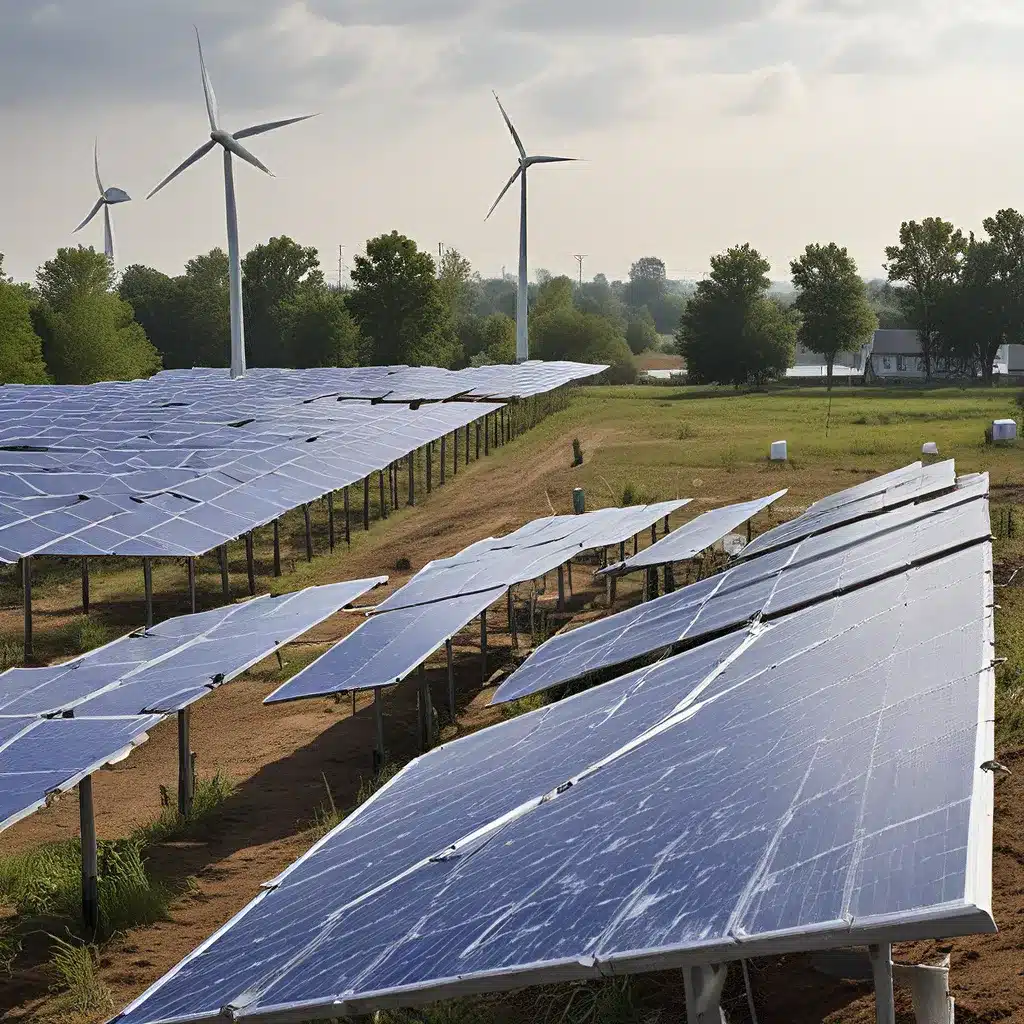
Embracing the Power of Renewables: A Lifeline for Our Communities
As the world grapples with the profound effects of climate change, it’s become increasingly clear that we must take action to protect our communities and safeguard our collective future. The good news? Renewable energy solutions offer a glimmer of hope, a way to build resilience and adapt to the challenging times ahead.
You see, I’ve always been fascinated by the incredible potential of renewable energy. It’s not just about generating clean, sustainable power – it’s about empowering our communities to withstand the impacts of a changing climate. And as someone who has witnessed the devastation of extreme weather events firsthand, I’m passionate about sharing this message with you.
The Urgent Call for Climate Adaptation
Let’s be real – the District of Columbia is already feeling the effects of climate change. We’ve experienced record-breaking heat waves, snowstorms, and flooding that have disrupted our lives and strained our infrastructure. And these issues are only going to intensify in the years to come.
That’s why the District’s Climate Ready DC plan is so crucial. It outlines a comprehensive strategy to help us adapt and prepare for the challenges ahead. And at the heart of this plan is the idea of community resilience – empowering our neighborhoods to withstand and recover from the impacts of climate change.
One of the key components of this strategy is the creation of Community Resilience Hubs – community-serving facilities that provide critical information and services before, during, and after emergencies. These hubs are designed to be havens of support, ensuring that our most vulnerable residents have access to the resources they need to weather the storm.
Renewable Energy: The Linchpin of Community Resilience
But what does renewable energy have to do with all of this, you ask? Well, let me tell you – it’s a game-changer when it comes to building resilient communities.
Imagine a scenario where a power outage strikes during a heat wave. Traditional energy sources might falter, leaving families in the dark and at risk of heat-related illnesses. But with solar panels and battery storage installed at the Community Resilience Hubs, these facilities can continue to provide critical services and a safe haven for those in need.
This is the power of renewable energy. It’s not just about reducing our carbon footprint; it’s about creating a more reliable, decentralized energy system that can withstand the unpredictable nature of a changing climate. And the best part? By investing in renewable energy solutions, we’re not just protecting our communities – we’re also empowering them to thrive in the face of adversity.
The Resilient Design Advantage
But the benefits of renewable energy go beyond just emergency preparedness. The District of Columbia has also released its Resilient Design Guidelines, which provide a framework for assessing the vulnerabilities of existing and proposed buildings – and then implementing best practices to reduce those risks.
This is where renewable energy solutions can truly shine. By incorporating solar panels, energy-efficient features, and battery storage into the design of our homes, businesses, and community centers, we can create structures that are more resilient to the impacts of climate change.
Imagine a world where our buildings can withstand extreme weather events and continue to provide essential services, even when the grid is down. Where our affordable housing is equipped with the tools to keep residents safe and comfortable, even during a heat wave. This is the future we’re working towards, and renewable energy is the key to unlocking it.
Harnessing the Power of Affordability and Accessibility
But as with any transformative change, there are challenges to overcome. One of the biggest hurdles is affordability – ensuring that these resilient energy solutions are accessible to all members of our community, not just the privileged few.
That’s why the District has developed the Affordable Housing Resilience and Solar Assessment Tool, a groundbreaking initiative that allows us to identify the climate risks faced by our affordable housing stock and evaluate the potential for solar and battery storage installations.
By leveraging this data-driven approach, we can prioritize the properties and communities that are most vulnerable, and then direct our resources towards implementing the necessary resilience measures. It’s a holistic, equitable approach that leaves no one behind in our pursuit of a more sustainable, resilient future.
The Power of Community Collaboration
Of course, no single entity can tackle the challenges of climate change alone. That’s why the District is collaborating with organizations like Firewinder, who are at the forefront of renewable energy innovation.
By working together, we can leverage our collective expertise and resources to develop cutting-edge solutions that meet the unique needs of our communities. Whether it’s designing resilient microgrids, implementing smart home technologies, or training local residents to become clean energy ambassadors, the possibilities are endless when we join forces.
The Future is Bright (and Renewable)
As I look to the future, I can’t help but feel a sense of cautious optimism. The path ahead is certainly not without its challenges, but with the power of renewable energy and the unwavering resilience of our communities, I believe we have the tools to overcome them.
Sure, there may be ongoing debates and evolving research around the best approaches, but that’s all part of the process. We’re exploring uncharted territory, and the solutions that emerge will be all the more impactful for it.
So, let’s embrace the future with open arms. Let’s empower our neighborhoods to become self-sufficient, sustainable, and prepared for whatever Mother Nature throws our way. Because when we come together, there’s no limit to what we can achieve.

